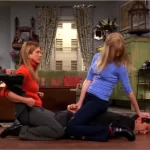The Assassin: A Touch of Zen, by David Bax
Hou Hsiao-Hsien’s The Assassin is an engulfing dream that you sink into like a warm bath. At times, the movie even sounds – with incidental noises like rustling leaves or a sword driven home into its scabbard louder than the dialogue; or with a score like a distant and muffled but ceaselessly approaching army – like being underwater. Still waters, as they say, run deep and The Assassin confirms it. What may be one of the quietest and gentlest films ever made (especially for a martial arts movie) may also be one of the most beautiful.
The assassin of the title is Nie Yinniang (Shu Qi), a woman raised in the order of trained killers from the age of ten. Yinniang has a surplus of mercy, a pesky trait for an assassin, and to prove her mettle, she is sent back to Weibo, the kingdom of her birth, to slay the military leader, who happens to be her cousin, Tian Ji’an (Chang Chen). He also happens, Yinniang learns, to have been her intended husband before their family sent her away into the care of the nun (Fang-Yi Sheu) who turned Yinniang into a killer.
It’s a complex plot, made only more so by the political backstory and maneuvering in committee meetings that is standard to Chinese and Taiwanese historical epics. Yet those scenes feel different here, partially because Hou treats them with the same hushed grandeur as he does pastoral vistas and swordfights and partially because the plot simply isn’t all that important to The Assassin.
Far more noticeable is the simultaneously simple and intricate visual style. Hou shoots in 1.37 (with the exception of one scene in 1.85) and in brilliant color (with the exception of a black and white prologue). The flat utilitarianism of that nearly square frame allows Hou to present images with a fundamental use of the foreground, neatly balancing people or objects with negative space. This simplicity is deceptive, though, because the background of these shots often seems to go on forever. Hou divides the deeper space into layers, using hanging rugs or curtains when indoors and mountain ranges and valleys when outdoors. In perhaps the most overt example, he stages nearly an entire swordfight with the camera on the other side of the tree line, so that we see limbs, garments and weapons lashing out as separate entities from the obscured bodies.
It would be superficial to read such moves as deconstructive. Hou does not appear to be commenting on the martial arts genre itself in any way, especially not one of condescension or remove. In most cases, in fact, he shoots fight scenes with an eye for excitement and pleasure. The Assassin cannot be reduced to some alternate, arty version of a wuxia movie. It is a wuxia movie in every sense and it is also overwhelmingly artful. In truth, The Assassin cannot be reduced or categorized to anything, other than a work of pure cinema that glides forward on its own engine of internal, elegiac logic.
If pressed, perhaps you could say The Assassin is a movie about purpose. Yinniang had one purpose – to marry her cousin – before she was forced into another – to be a trained killer. Neither purpose is her own, though, and the narrative tension comes from her trying to decide what, then, she is for. Lucky for Yinniang, she has found herself in the most undeniably purposeful and vital films of the year.





























